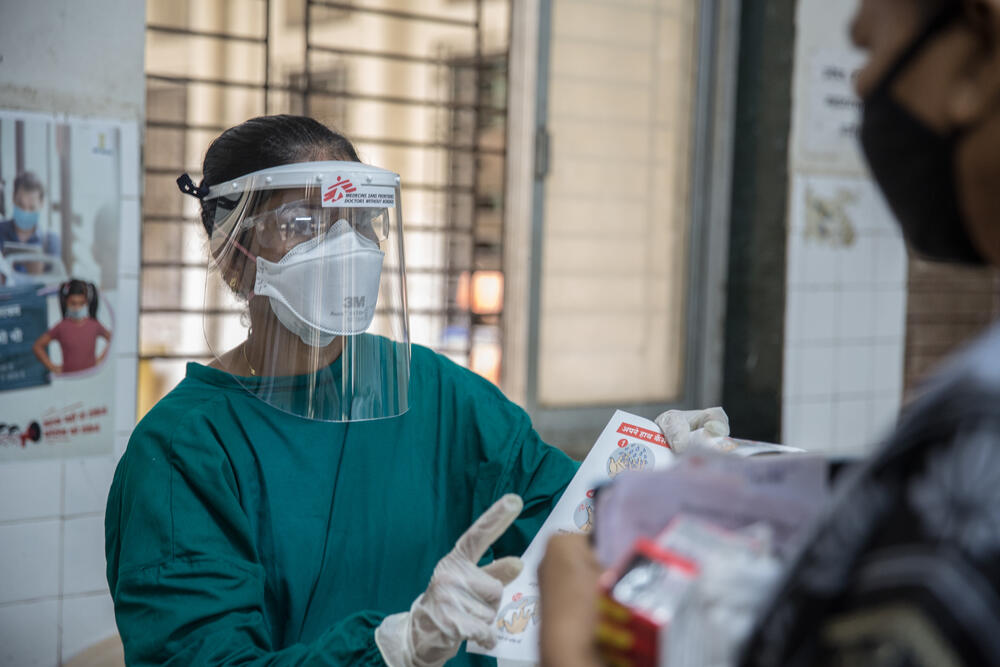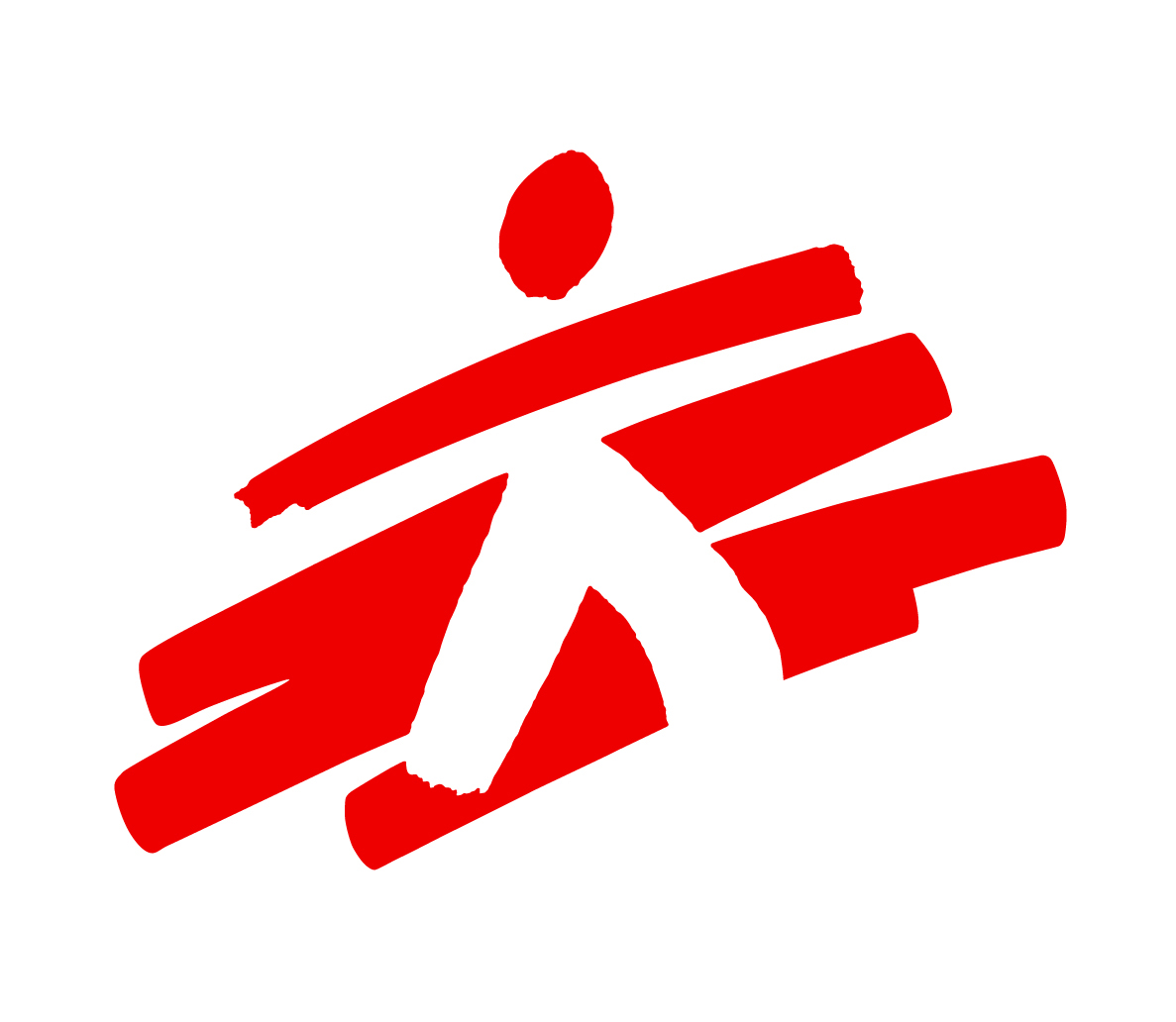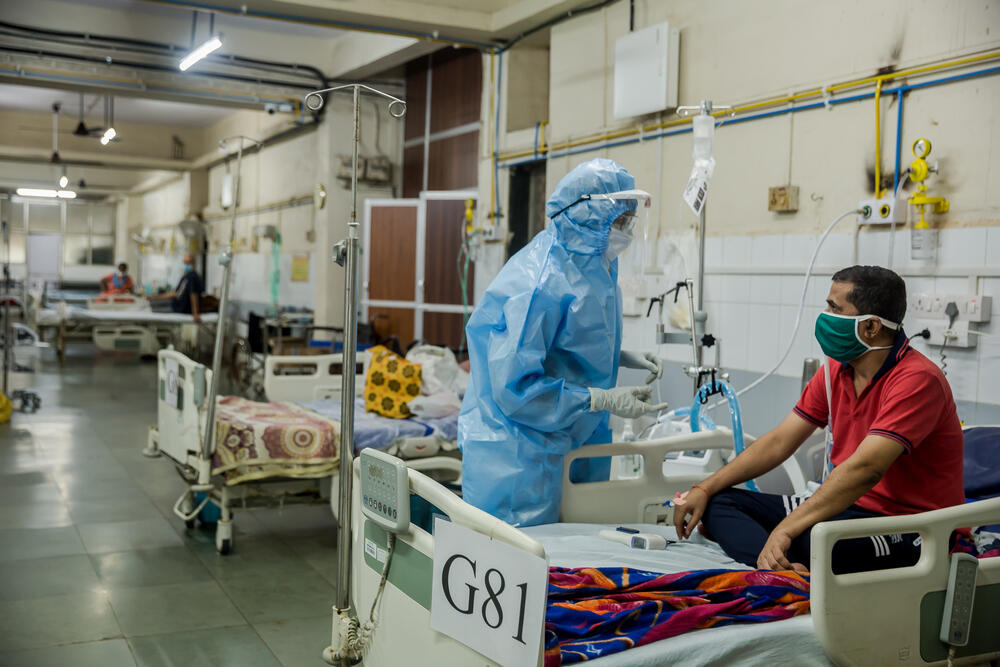COVID-19 in India: "It's changed me as a person and as a doctor"
Picture a thousand-bed hospital. There are 28 wards, as well as the emergency, casualty and triage areas. It’s a makeshift hospital in a huge metal tent. Walking into it the first time was a surreal experience; I’ve never seen anything like it.
It’s like walking into a huge ship. The ceiling is really high, but the ventilation is not great. It meets some standards, but it doesn’t really suit the Mumbai environment.
During the morning, Mumbai becomes very humid. It’s excruciatingly hot. And working in a protective suit for six hours; it’s unimaginable. The heat is almost too much to take.
This is the second week of our emergency project. Last week, we had about 200 to 250 new patients admitted every day and, while the situation in Mumbai remains very serious, as a team, we have had a better week.
"COVID has changed me as a person and as a doctor. I used to be very patient-centred... Now, I’m scared of building relationships with patients"
This week we’ve seen improving results from our patients, better than we expected.
When I first began working at the Mumbai COVID centre in September 2020 it was chaos, with waves and waves of scared people coming in every day. After that, things smoothed out; patient care smoothed out.
Burn-out
Today, our greatest challenge is attrition of staff. People just cannot work in this environment for long periods of time. It’s burn-out, and the burn-out cycles are faster now than in the first wave.
Right now, it’s three days and you’re burned out. Even if your shift is only six hours, those are COVID hours. It’s the conditions, the sheer number of patients and the lack of proper induction.
There are 28 wards; each ward should have two nurses present per shift and there are four shifts. You do the math and you can see – it’s hard to find that many nurses.
We are focused on recruiting and training new staff. Many of the Ministry of Health nurses we work with are fresh graduates who’ve been thrust into something that nobody really expected or can really fathom.
They’re trying get the job done, but they’re inexperienced and don’t know how to manage their work or their time. Our MSF nurses are supporting MOH nurses with mentorship and coaching at the patient’s bedside.
COVID has changed me as a person and as a doctor. People are dying, but I’ve become used to it. We have come to terms with it. I’ve not had the time to reflect on them. I used to be very patient-centred, all about patient advocacy.
Now, I’m scared of building relationships with patients. At first I did that, and then I would come back for my next shift and see their empty bed, and that would break my heart.
Even the fact that I now refer them as ‘the patient’. I would have used a name before. Or I would say, ‘my patient’. This is how it’s changed me.
Preparing for every possibility
We have come up with intuitive ways to make the work easier on our staff. The MSF team is full of really strong personalities.

Help us prepare for the next emergency
"Everyone must speak out as much as they can about the situation in India."
This is what I look for when I recruit them. Each member of our team is really strong, both their clinical skills and their personality.
We’re encouraging our staff to start conversations early on their patient about the possible eventualities of COVID, to help both staff and patients understand what might happen; the possibility of their death.
We’ve had positive results from this. It’s helped our team accept what happens to their patients. Not just that they’ve had the conversation, but that the patient knew what was going to happen, and was in some way prepared for it.
Everyone must speak out as much as they can about the situation in India. What’s happening now is an atrocity at the least and if no one talks about it, it would be like it never happened.
It would be that tree that fell in the forest. India has plenty of people ready to volunteer however they can and plenty of people who want to receive medical care if they can. The gaps are in the infrastructure.
What about people who are not on social media or smart phones? How do they access these resources? How do they know what is going on? In such communities, COVID is almost a silent killer.
It’s kind of ebbed at the moment, but it feels like the calm before the storm. There is a fear that Mumbai might go into a complete lockdown.
We are really working overtime to put things in place before anything worse happens. If it doesn’t happen, great; COVID is a context where I love to be wrong!
How can I help the COVID-19 crisis in India?
MSF has launched an emergency medical response in Mumbai, India, providing staff, expertise and life-saving supplies during the COVID-19 crisis.
We’ve been able to move quickly because of the unique way we are funded – by people like you, making donations that aren’t limited to one specific event. This means we don’t need to start a fundraising campaign before we can help – we use flexible “unrestricted” funds to act fast and save lives, now.
Please make a donation today. If the crisis escalates in India or anywhere in the world, your unrestricted donation will mean that our emergency teams are ready for whatever comes next.


